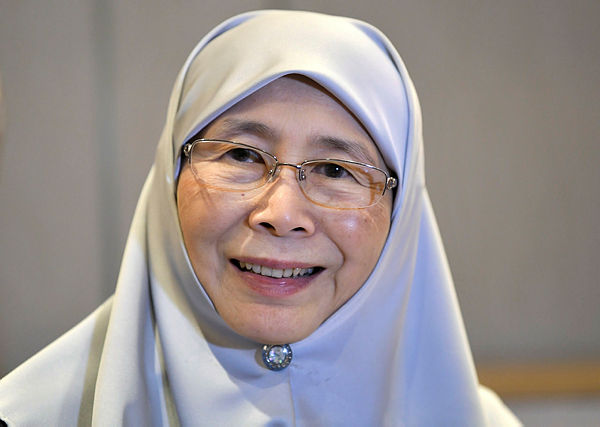KUALA LUMPUR: Employers, insurance companies and relevant institutions need to collaborate in enabling the public to access subfertility treatment, said Deputy Prime Minister Datuk Seri Dr Wan Azizah Wan Ismail (pix) today.
The government will also work towards ensuring that subfertility is categorised as an illness that receives insurance coverage, said Dr Wan Azizah who is also the Women, Family and Community Development Minister.
Explaining that the high cost of subfertility treatment, estimated to be between RM1,000 and RM12,000, was preventing many couples from seeking this option, she said, “Maybe for a start, the IUI (intrauterine insemination) procedure can be covered by healthcare schemes, particularly for private sector employees”.
Adding that civil servants could access subfertility treatment at clinics run by the National Population and Family Development Board (LPPKN) and seek reimbursement from the government, she said private sector employers could also consider providing incentives or special payments to employees, particularly the childless, who could not afford to receive such treatment.
As an example, Dr Wan Azizah said, the cost of subfertility treatment could be included in the list of treatments provided by an employer’s health panel, while employers could also provide moral support by providing staff with approved leave in order to undergo subfertility treatment.
On the matter of population fertility, she said that according to Department of Statistics records, the country’s Total Fertility Rate (TFR), which represents the average number of births per woman in the reproductive age bracket, had dropped from 6.7 in 1957 to 1.9 in 2019.
The reducing TFR was a main factor that would make Malaysia have an increasing elderly population, with the country predicted to become an ageing nation in 2030 when 60-year-olds and above will comprise more than 15% of its population.
Dr Wan Azizah further added that research undertaken by the Social Wellbeing Research Centre at Universiti Malaya indicates that if the situation is not addressed, 20% of the country’s population would comprise the elderly in 2040, thus presenting challenges in the form of increasing healthcare costs. — Bernama













